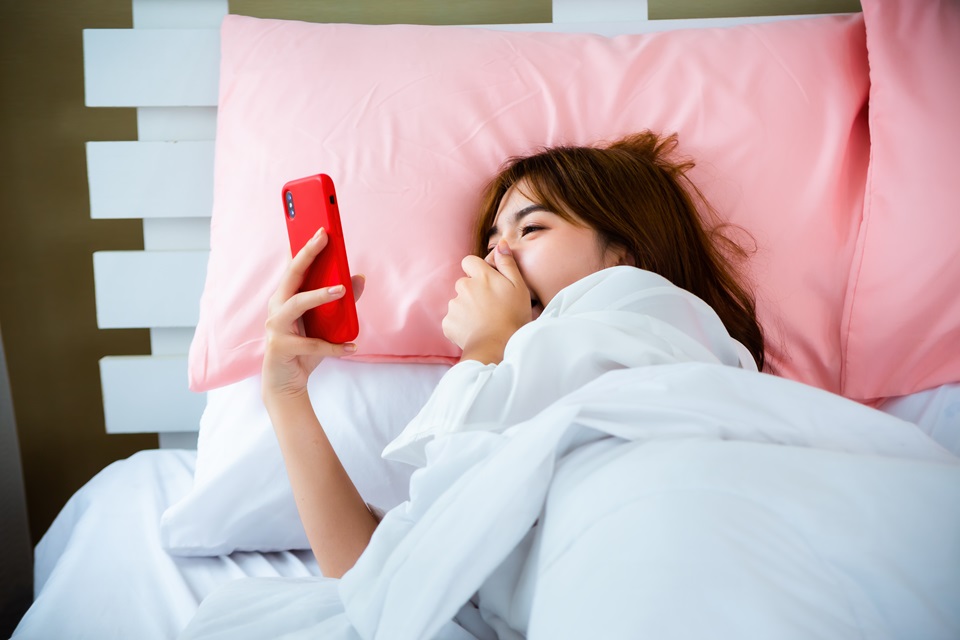People are increasingly spending their evenings going through their cell phones before going to bed in this digital era. On the other hand, this behavior can be detrimental to general well-being and the quality of one’s sleep. Changing up your routine before bed might help you get a better night’s sleep. To avoid the blue light that screens generate, try combining these five activities into your pre-sleep routine.
Table of Contents
Read A Physical Book
An age-old and successful method of decompressing is to read before bed. To prevent exposure to the blue light generated by screens, which can disrupt the body’s normal sleep-wake cycle, use a real book instead of an e-reader. Pick a book that isn’t too stimulating, such as a non-fiction work on a topic you’re interested in or a novel or poem. By engaging in this activity, you may help divert your attention from the stresses of the day and provide a peaceful environment that promotes sleep. Turning actual pages may improve the reading experience by adding a tactile element that makes the reading more engaging and pleasurable.
Practice Relaxation Techniques
You may assist your body in preparing for sleep and quieting your thoughts by practicing relaxation exercises. Think about techniques like gradual muscular relaxation, guided meditation, or deep breathing. By releasing tension and stress that has built up over the day, these techniques can help people feel more at ease. Engaging and focusing on a specific breathing rhythm, can enhance the effectiveness of these relaxation methods. Screen time is not necessary to be guided through these techniques thanks to the many apps and podcasts that offer led relaxation sessions. Deep breathing exercises can help improve the flow of oxygen to your brain, which can promote a calm and clear frame of mind that is ideal for a restful night’s sleep. These methods provide a better state of general well-being in addition to encouraging relaxation.
Journaling
Before going to bed, spending a few minutes writing down your ideas and insights in a diary may be beneficial. Take this opportunity to thank people, write down the good things that happened in your day, or let go of any anxieties or concerns. Before going to bed, this procedure can facilitate a calmer state of mind-body transition by helping you declutter and feel like you’ve finished something. Keeping a thankfulness notebook has also been connected to enhanced well-being and mood. Journaling is a reflective activity that helps you understand your feelings and experiences, which enhances emotional health and mindfulness as you get ready for bed.
Create A Relaxing Bedtime Ritual
A relaxing ritual you establish before bed might help your body know when it’s time to relax. This may be doing mild yoga, having a warm bath, playing a unique patterned game puzzle on your phone or drinking a cup of herbal tea without caffeine. The secret is to find ways to de-stress and tell your body when it’s time to go to bed. Stay away from intellectually taxing or too stimulating activities since they might interfere with the body’s ability to go into a resting state. Establishing a regular bedtime routine helps your body detect and react to signals that it’s time to sleep by reinforcing a feeling of predictability and comfort.
Listen To Soothing Music Or Podcasts
Before going to bed, listening to relaxing music or podcasts may be a terrific way to relax. Select calming and soft material; stay away from anything overly energizing or exciting. Slow-tempo music or sounds of nature might help create a calm environment that is ideal for sleeping. Similar to this, there are a ton of sleep-inducing podcasts available that provide calming tales, meditations, or background noise to assist you in falling asleep. You may customize your audio experience to fit your tastes and create a calming atmosphere for your bedtime by creating a playlist or podcast selection. This deliberate choice of soothing sounds improves your capacity to detach from the stresses of the day and promotes a more peaceful mental state as you get ready for bed.
Conclusion
Giving up the practice of using your cell phone right before bed can have a big impact on your general well-being and quality of sleep. You may create a pre-sleep routine that encourages relaxation and prepares you for a pleasant night’s sleep by including activities like reading a book in person, journaling, practicing relaxation methods, setting up a nighttime ritual, and paying attention to calming material.



